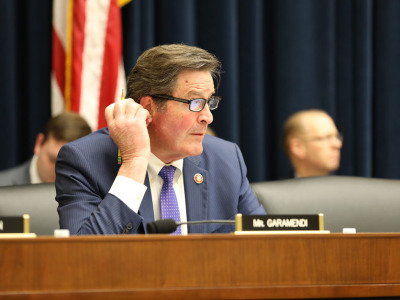The Environmental Protection Agency is expected to act later this year on 15-year-old Renewable Fuel Standard language that would allow power derived from renewable biomass for electric vehicle charging to qualify for credits through the program.
The EPA, which has ignored the language for years, has taken a distinct interest in finally implementing the provision, a biofuel industry source told Agri-Pulse. The agency's efforts are being spurred by a White House focused on expanding the use of electric vehicles, according to a report by Reuters.
Approval for the EV provision is likely to come when the agency proposes its 2023 Renewable Volume Obligations, which must be done by September 16, the biofuels industry source said.
Congress made electricity from renewable biomass eligible under the Renewable Fuel Standard through the Energy Independence and Security Act of 2007. Since the legislation is already in place and requires only executive branch action, it’s a simple move President Joe Biden can make to advance on his EV agenda.
“I think President Biden has been pretty clear that he wants electric vehicles to be a big component of his climate strategy,” said Maureen Walsh, the director of policy for the American Biogas Council. “Activating this pathway, I think, could be a significant win for this administration when it comes to supporting those goals.”
The RFS is a policy created to ensure that renewable fuels were being used as transportation fuel in the United States. It requires fuel refiners or importers to blend renewable fuels with gas or diesel or purchase credits that are generated from the production of each gallon of renewable fuel.
Renewable biomass sources like biogas, wood-based feedstocks or agricultural byproducts that are used to generate power would be able to generate these credits, if approved by the EPA.
The EPA has not yet created formal rules for a biomass-to-electricity program or approved any applications from producers, despite having the ability to do so. According to a 2021 press release from Rep. John Garamendi, D-Calif., some petitions for biomass electricity pathways have been pending for over seven years.
“There have been producers of biogas to electricity that have applied to the (EPA) Office of Transportation and Air Quality to register their projects and their applications have just gone nowhere,” Walsh said. “They haven't been acted upon.”
In a 2016 proposed rule, EPA attributed much of its hesitation in accepting applications to the challenge of determining who — whether that be the electricity producer, the utility distributing the electricity, the electric vehicle owner, the charging station or the manufacturer — would generate the credits.
Looking for the best, most comprehensive and balanced news source in agriculture? Our Agri-Pulse editors don't miss a beat! Sign up for a free month-long subscription.
The agency also said it would need to iron out how it would track whether renewable electricity was being generated from approved biomass and whether it was being used as transportation fuel, expressing concern that the wrong framework could open the program up to fraud.
“In determining the regulatory requirement for parties seeking to generate RINs (credits) for renewable electricity, our goal is to establish an open and comprehensive program that will best incentivize growth in the use of renewable electricity without sacrificing the integrity of the RIN market,” EPA said in the proposed rule.
 Rep. John Garamendi, D-Calif.
Rep. John Garamendi, D-Calif.Garamendi, a supporter of renewable electricity inclusion in the RFS, introduced legislation last November that would force the EPA to make decisions on pending applications and incentivize the agency to be more active in implementing the policy. It would also make biomass from federal forestlands eligible for the RFS.
Garamendi’s proposed bill, the Biomass and Biogas for Electric Vehicles Act, would also allow the agency to collect a fee from applicants to cover the costs associated with reviewing proposals. If it did not approve pending applications within one year, the agency would have to refund the fee at the request of the applicant and it still would have to process the application.
Carrie Annand, the executive director of the Biomass Power Association, said she is not sure exactly what a potential rule from EPA would look like, but she said biomass producers are hoping to see one announced in the fall.
“The ability to generate RINs represents stability for our members, the ability to get credits for the power that they are already supplying to electric transportation and that they should be eligible for, but they have not yet been able to obtain," she said.
For more news, go to www.agri-pulse.com.


